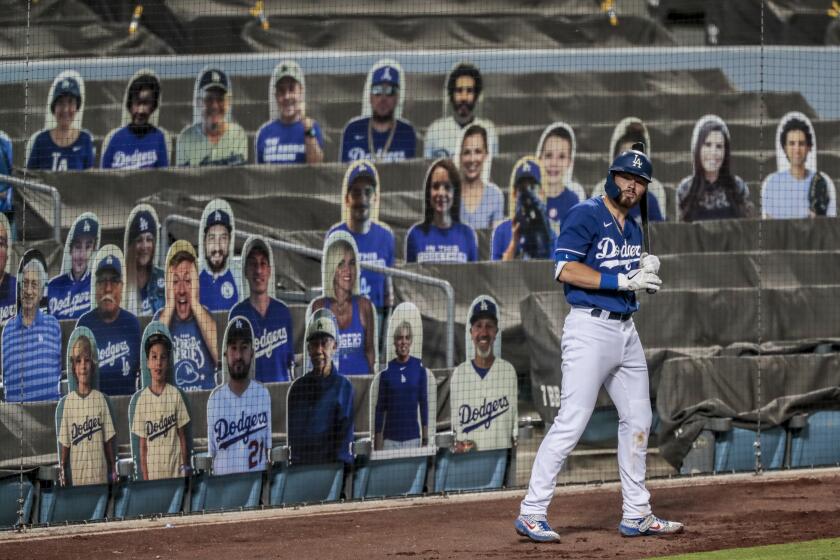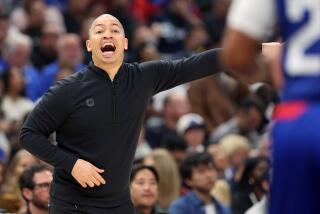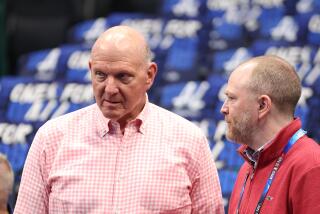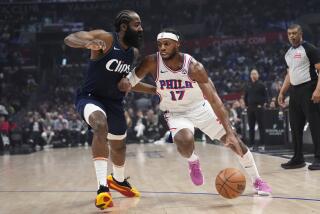Analysis: With Clippers’ momentum derailed, can team still be a contender?
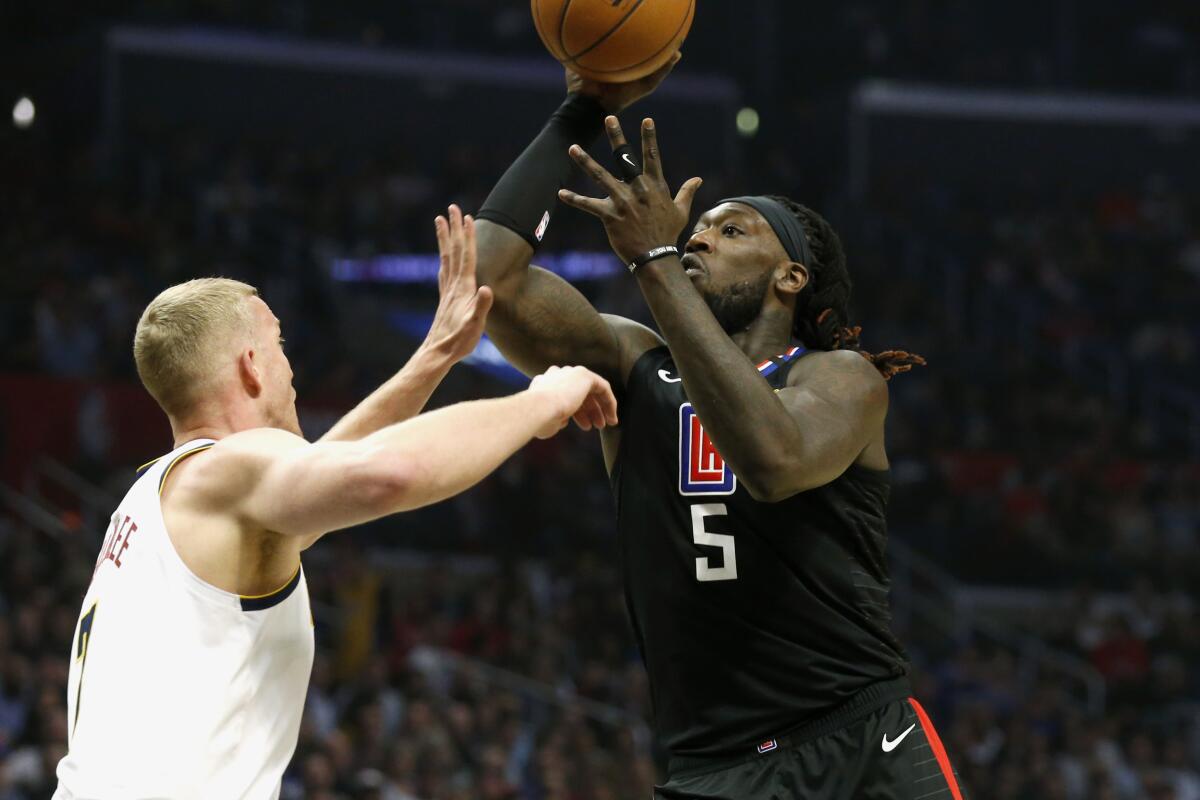
The Clippers made NBA history on March 9. It just took a while to realize.
The 10-day contract the team and backup center Joakim Noah finalized that day? With the NBA season suspended and a moratorium on all roster activity freezing contracts across league through at least April 10, it’s suddenly on track to become the longest of its kind ever signed.
It is, of course, just one, small example of the coronavirus pandemic moving the NBA season into uncharted territory.
The uncertainty is unsettling for the Clippers, given they began the season in an unfamiliar position: a favorite to win the NBA title. At few points in the franchise’s 50-year history has it ever been a credible championship contender, and in recent weeks, as the health of an injury-riddled roster allowed it to play together for its longest stretch, they had offered their most forceful justification for those championship-level projections — only to have the season abruptly put on pause.
They are 10-1 when playing with no injuries to report and have won seven of their last eight games overall to move into second place in the Western Conference standings. The only loss in either category came against the conference-leading Lakers.
Since the league’s All-Star break, the Clippers own the NBA’s second-best offensive rating (117.3 points per 100 possessions) and fifth-best defensive rating (105.8 points allowed per 100 possessions). No other team ranked in the top five in both categories. The Clippers grabbed the fourth-highest percentage of rebounds and committed the eighth-lowest percentage of turnovers since the mid-February break.
Their last game was a 24-point victory over Golden State on March 10 that moved coach Doc Rivers into a tie with Red Auerbach for 11th place on the all-time NBA coaching list. Rivers, afterward, called himself lucky afterward to have coached “great guys” over 21 seasons.
“You rush to work,” he said.
Rivers is still permitted to go to work, but he won’t be around his full group for the foreseeable future. NBA players are allowed to work out at their team facility but only on an individual basis, which raises the question of how any team hopes to maintain its continuity, let alone one such as the Clippers, who seemingly just captured theirs after using a league-high 29 starting lineups.
Stories examining the impact the spread of the coronavirus has had on the NBA, NHL, MLB, the NCAA tournament and the rest of the sports world.
Forward Paul George is one example of a player beginning to regain his stride — coming off his latest hamstring injury, his minute restrictions had recently been raised from 24 per game to 30 — who must now maintain his form during a break of unknown weeks, or months.
“The longer I can be out there,” George said on March 10, “the better it is for rhythm and timing and racking up minutes with those going down the stretch.”
Yet social distancing recommendations issued by local and federal officials mean this isn’t like any previous break, where players stayed sharp in high-level pickup games in New York or at UCLA.
Should games resume at all, the Clippers (44-20), however, might consider the rest worth the rust. There is now ample time for backup point guard Reggie Jackson and Noah, the most recent additions, to digest the playbook and for coaches to consider their best lineups. The same team that had sought to lighten key players’ workloads in anticipation of a lengthy postseason now has a much smaller load to manage for the foreseeable future.
That could recharge veterans such as All-Star forward Kawhi Leonard, who popularized the load-management strategy last season while winning a championship with Toronto, George, who had suffered several hamstring injuries since Jan. 1; guard Patrick Beverley, who missed 16 games to injuries; and reserve Lou Williams, whose 29 minutes per game this season is the third-highest average of his 15-season career.
Even backup center Montrezl Harrell, only 26 and known for his energy, could seemingly benefit from the break after averaging a career-high 27.8 minutes per game and playing the entire fourth quarter 26 times this season.
But the time away will be tricky, as players learn to adjust old routines in the face of new precautions.
“We’re always together,” Williams said last month, describing how players would often eat with their families after games before reconnecting with teammates later the same night. “Our families are always together, especially Pat and [Harrell]. We’re just a tight group.”
The day after signing with the Clippers, Noah looked as though he’d been part of the group for longer than 24 hours. After finishing his pregame workout in San Francisco, he and 22-year-old starting center Ivica Zubac began an extended conversation in courtside seats.
“Zub should ask him every question, every day, about everything,” Rivers said. “The guy has been through it all.”
Just nothing like this. No one has. If those conversations continue, they will happen by phone.
More to Read
Get our high school sports newsletter
Prep Rally is devoted to the SoCal high school sports experience, bringing you scores, stories and a behind-the-scenes look at what makes prep sports so popular.
You may occasionally receive promotional content from the Los Angeles Times.

